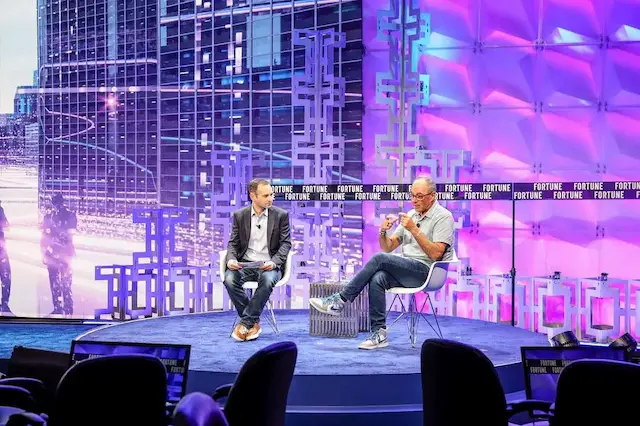如何打好职场年龄歧视反击战
|
你是否觉得因为年龄的缘故丢了饭碗?或是你正在为此而担惊受怕?其实,有相同经历的大有人在。 美国平等就业机会委员会(Equal Employment Opportunity Commission)报告称,过去几年,有关年龄歧视的诉讼数量有所增加,从2006年的16,548起(占所有诉讼数量的21.8%)增加到2009年的22,778起(占所有诉讼数量的24.4%)。 但美国退休者协会(AARP)资深律师劳丽•麦卡恩却认为,在经济困难时期,这个数字只不过是“冰山一角”。她表示,许多人并没有提出申诉,原因在于“很难找到证据”;而2009年美国最高法院(Supreme Court)就“格罗斯起诉FBL金融服务公司(FBL Financial Services, Inc.)”一案的判决则使年龄歧视的申诉更加困难。【最高法院判决,与依据其他反歧视法提出索赔的原告相比,依据《反就业年龄歧视法》(Age Discrimination in Employment Act)提起年龄歧视控诉的原告应遵守更严格的举证标准。】 麦卡恩表示,许多人通常认为,与其投入资金和精力把工作争取回来,不如另谋出路。对于个人来说,的确格外困难。不过,如果碰到了集体裁员,“就要利用数量上的优势,集中财力和人力,并寻求律师的帮助。如果是个人面对这种情况,则只能依靠个人的坚强意志了。” 未雨绸缪 麦卡恩表示,与其等到被辞退了再去提起申诉,不如马上采取措施,保护自己的权利。 “充分利用各种培训,尤其是计算机技术方面的培训。要确保自己不会落伍。保持专业素养,甚至包括着装和发型。” 麦卡恩表示,如果近期未得到上司的反馈,员工应该主动提出要求。“如果上司没有如实 [对你的绩效做出评估],那你应该追问他:‘您认为我有什么地方需要改进吗?’这样就可以迫使他们对你做出真实的反馈了。” 万一有一天真闹到了法庭上,员工之前的努力就会收到回报。麦卡恩认为,“如果原告在被辞退之前,一直广受好评”,那么不论法官还是陪审团,都不会赞许此类诉讼。 此外,让老板明白,员工了解自己的权利,这并不会带来什么损失。如果员工对所谓不公平待遇或歧视性言论感到担忧,可以与经理或人事部沟通。麦卡恩表示,要让他们明确一点,那就是“我是不会忍气吞声的。” 提起申诉之前的功课 如果员工认为有必要针对年龄歧视提起申诉,首先必须考虑下列几个数字。首先,ADEA禁止对40岁及以上的员工进行年龄歧视。(部分州级法律甚至降低了年龄限制。)其次,公司的规模是否达到20人或20人以上?因为ADEA不适用于更小规模的企业。 若公司进行集体裁员或连续裁员,则员工可搜寻统计资料,为索赔提供支持。来自纽约的律师埃里克•M•尼尔森表示,在这种情况下,《高龄职工福利保护法案》(the Older Worker Benefit Protection Act, ADEA修订案)规定,雇主“必须为被辞退的员工提供必要信息,帮助员工确定此次裁员中高龄职工的比例是否过大。这将迫使雇主……[明确]哪些员工是因为年龄原因被辞退的。” 另外,还有一种比较可靠的方法:整理有利于诉讼的细节。律师兼作家罗莉•B•拉塞斯表示,很少会有确凿的证据,但是肯定会有一些微妙的迹象,证明歧视是的确存在的。 她表示:“切记,需要关注的因素不仅仅是年龄本身,还包括与年龄相关的其他因素。如果公司说你经验太丰富,或者[说]你挣得太多了,可能都与年龄有关。” 拉塞斯著有《雇佣法:雇主与雇员指南——聘用、管理及解雇》(Employment Law: A Guide to Hiring, Managing and Firing for Employers and Employees)一书。她建议,当员工认为自己成为裁员目标时,便应着手写日志。“这样,便可以拥有详细的事例。否则,等到被辞退时,一切都太晚了。” 但是,一定要保证此类日志仅限于个人记录。她还提醒,一定不要违反法律。“一定不要记录公司的事情,或从公司窃取数据。” 老板通常会说,之所以辞退某个人,是因为一些绩效方面的原因,而埃里克•尼尔森却认为,这恰恰是对原告有利的证据。 尼尔森表示:“高龄员工往往长期担任某一职务。我的意思是:‘他不可能在某天早上醒来,突然忘记了该如何工作。这说明,老板多年来一直都很认可他的工作表现。’” 在失去工作后,要打赢年龄歧视官司是很难的;而要在因为年龄歧视未被录用而提起的诉讼中获胜,则是难上加难。 拉塞斯表示:“这种官司更难打。而且,通常也没有什么价值。因为,原告的投入并不多。” 尼尔森表示,对于求职落榜的案件,一个很大的问题是“找工作的人大多数都没有提出诉讼的资源。”另外一个问题是,他们并没有在公司的历史记录可以呈交给陪审团。 他表示,不论是哪一种有关年龄歧视的诉讼,难点都在于“要想证明自己受到了歧视,就得向法庭揭示解雇你的人、或没有聘用你的人他们内心的真实想法。” 无论如何,这都不是一件容易的事。 |
If you think your age has cost you your job -- or fear it might -- you have plenty of company. The Equal Employment Opportunity Commission (EEOC) reports that the number of age discrimination charges has increased over the past few years, rising from 16,548 charges (21.8% of all claims) in 2006 to 22,778 (24.4% of all claims) in 2009. But that's just "the tip of the iceberg" in this tough economy, says Laurie McCann, senior attorney for AARP. Many people don't file complaints, she says, because age discrimination is "incredibly hard to prove" and a 2009 Supreme Court decision, Gross v. FBL Financial Services, Inc., has made it even harder. (The court decided that plaintiffs claiming that they were victims of age discrimination under the federal Age Discrimination in Employment Act should be held to a more stringent standard of proof than plaintiffs pursuing claims under other anti-discrimination laws.) Many often decide that their financial and emotional resources are better spent looking for another job than fighting to get their old one back, McCann says. It's especially difficult for individuals. With a group layoff, "there is strength in numbers. People can pool their money and work together to make phone calls and interview attorneys. With an individual, it takes a strong, determined person." Taking preemptive measures Instead of waiting until you're laid off and filing a complaint, it may be better to protect yourself sooner, says McCann. "Take advantage of any sort of training, especially in computer skills and technology. Make sure you're not getting behind. Maintain your professionalism, down to your dress and hairstyle." And, if you haven't gotten feedback from your manager recently, you should seek it out, McCann says. "If your manager is glossing over [your performance appraisal] ask, 'Are there any areas where you think I should look to improve?' Force them to give you some sort of feedback." That can pay off in the courtroom (if it comes to that) because she says neither judges nor juries "look favorably" on cases "where someone has had glowing reviews up until they were terminated." It also doesn't hurt to let your employer know that you're aware of your rights. Talk to your manager or someone in the HR department if you are worried about what you consider unfair practices or discriminatory comments. Let them know "I'm not going to go quietly," says McCann. Before you file a complaint If you do feel the need to file an age discrimination complaint, you should consider some numbers first. First, the ADEA forbids age discrimination against people who are age 40 or older. (Some states have laws that also protect younger workers.) Second, does the company have 20 or more employees? The ADEA does not apply to smaller firms. If you were included in a group layoff, or series of layoffs, at your company, you may be able to find statistical evidence that supports your claim. In such cases, the Older Worker Benefit Protection Act, an amendment to the ADEA, requires employers "to supply people who are in the position of being let go with information so they can determine whether the layoffs are falling disproportionately on older workers. It makes the employer … [specify] who is getting laid off by age," says New York attorney Eric M. Nelson. Compiling anecdotal evidence that supports your case is another solid approach. There's rarely a smoking gun, says attorney and author Lori B. Rassas, but there may be subtle indications of discrimination. "Keep in mind, it's not just age, but age-related factors. Saying you have too much experience could be age related. Or, [saying] that you make too much money," she says. Rassas, who is the author of Employment Law: A Guide to Hiring, Managing and Firing for Employers and Employees, recommends starting a journal as soon as you believe you are being targeted. "You want to have specific examples. When you get fired, it's too late." But make sure your journal is a personal account. Don't overstep legal bounds, she adds. "You don't want to be recording things, or stealing" data from the company. Employers frequently say that they fired someone for performance-related reasons and that's where Eric Nelson sees an advantage for the plaintiff. "With older workers, you're dealing with people who have been in a position for a longer period of time," says Nelson. "I'll say, 'He didn't just wake up one morning and forget how to do his job. The employer found his performance okay for years.'" As hard as it is to win an age discrimination case after you've lost a job, claiming that you weren't hired for a job because of age discrimination is even more difficult. "It's harder to do," Rassas says, and usually "it's not worth it. The person doesn't have as much invested." A big problem with failure-to-hire cases, Nelson says, is that "most people who are looking for work don't have the resources to litigate." Another is that they don't have a track record at the company to present to the jury. With either type of age discrimination claim, the difficulty is that "proving you were discriminated against means showing what's in the mind of the person who fired you or who failed to hire you," he says. That's no easy task, under any circumstances. |











